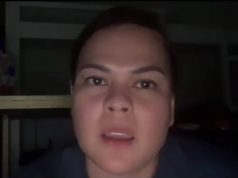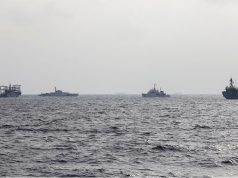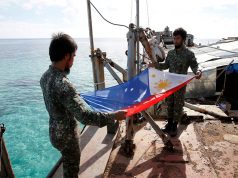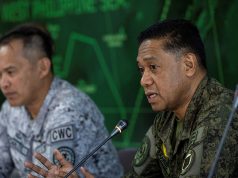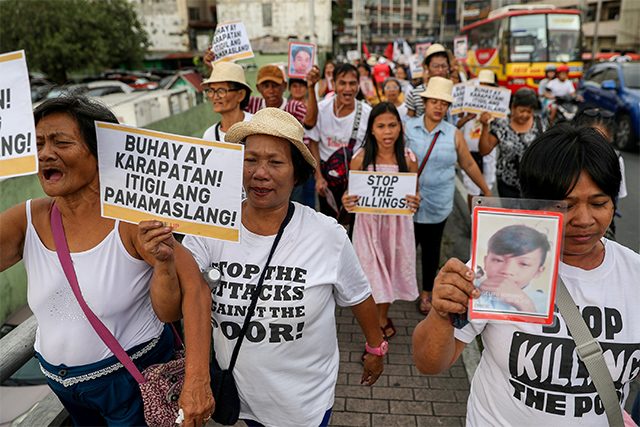
The recent poll ranking of the Philippines being one of the safest countries in the world ran counter to the findings of international human rights groups about safety in the country.
US-based analytics firm Gallup Inc. or Gallup released a study called the 2020 Global Law and Order Index where the Philippines placed at the top 50 out of 144 safest countries in the world.
The Philippines scored 84 and tied with Australia, New Zealand, Poland and Serbia.
The top five safest countries in the list are Singapore (97), Turkmenistan (97), China (94), Iceland (93) and Kuwait (93).
Singapore also topped the list of countries/areas where people feel safest walking alone.
In terms of confidence with local police, Western Europe got a score of 83, followed by Southeast Asia with a score of 81.
Overall, Gallup stated that 69% of adults have confidence in their local police.
These results were based on telephone and face-to-face interviews conducted with at least 1,000 adults or participants aged 15 and older in 144 countries and areas throughout 2019.
“The margin of sampling error ranged from ±2.1 percentage points to ±5.6 percentage points at the 95% confidence level,” the study said.
Only four questions were asked to gauge the “personal security” of these countries. These are:
- In the city or area where you live, do you have confidence in the local police force?
- Do you feel safe walking alone at night in the city or area where you live?
- Within the last 12 months, have you had money or property stolen from you or another household member?
- Within the past 12 months, have you been assaulted or mugged?
For the Philippines, the survey was conducted among 2,090 participants from October 8 to 24, 2019 via face-to-face interviews.
The Gallup Inc. is different from the Gallup International Association or GIA that claimed the Filipinos’ high satisfaction rate with the national government’s response to the pandemic last April.
Is the Philippines really safe?
While this analytics firm has been credited in election polls before, the findings of its new research raised suspicions among some Filipinos on social media.
National and social issues were recalled such as the human rights violations in the Duterte administration’s bloody drug war, the violence against activists and killings and threats to land activists and journalists to contradict the study’s findings.
"Feel safe and have confidence with the Police." https://t.co/9rOY8DkC8q pic.twitter.com/DQq6cDVQxW
— Jacques (@joachiimmmm) November 4, 2020
Same Philippines? https://t.co/rOiHrh1s6a pic.twitter.com/hHC4ZnRQNd
— mayka #SaveLumadSchools 🌻 (@maykamaykaba) November 4, 2020
The International Federation of Journalists declared the Philippines as the most dangerous country in Southeast Asia for journalists in 2018.
On the same year, Global Witness, an international watchdog for environment and corruption, reported that the country is world’s most dangerous for environmentalists.
Singer-songwriter Kakie Pangilinan, also the daughter of Sharon Cuneta and Sen. Francis Pangilinan, argued that the Philippines will only be safe if Filipinos feel safe.
“The Philippines is considered the SAFEST country where people feel SAFE and have SAFEGUARD and SAFETY so SAFE and also they like the police,” Pangilinan said.
the philippines is considered the SAFEST country where people feel SAFE and have SAFEGUARD and SAFETY so SAFE and also they like the police
— kakie (@kakiep83) November 4, 2020
Others cited specific situations and concerns such as the high risks of crime in the streets and the recent issue of red-tagging of celebrities.
“Sadly no, between the redtagging, the Uber lady incident, Bato booboos, this sentiment is most patently false,” one user said.
“Paano naging safest eh kapag sasakay ka ng bus at MRT kailangan nasa harapan ang bag at wallet para di ka madukutan. Kailangan umiwas sa madilim na kalsada kasi maholdap o ma rape ka! At di mo pwede iwan sasakyan ng di mag-aalala,” another wrote.
Unlike local pollsters Social Weather Station and Pulse Asia, Gallup did not specify the places in the Philippines where it conducted the survey. However, it has a disclaimer in the details that some places were excluded.
“Some areas were excluded from the sampling frame, due to security concerns (such as barangays considered as war zones in Marawi) and areas that are remote or inaccessible. The excluded population from these areas represent less than 1% of the population,” the study said.
DILG welcomes the results
Interior Secretary Eduardo Año, meanwhile, welcomed the results and noted that this is proof that the government has progress in its war against criminality and drugs.
“It is very reassuring for us working in the government knowing that the people feel safe in their homes and on the streets. Itong 84% rating na nakuha ng Pilipinas na kumakatawan sa tiwala ng mga Pilipino ay magsisilbing inspirasyon at hamon para sa pamahalaan,” Año said.
“The goal is to sustain this rating in the long run para sa mas ligtas na mamamayan at mas ligtas na Pilipinas,” he added.




